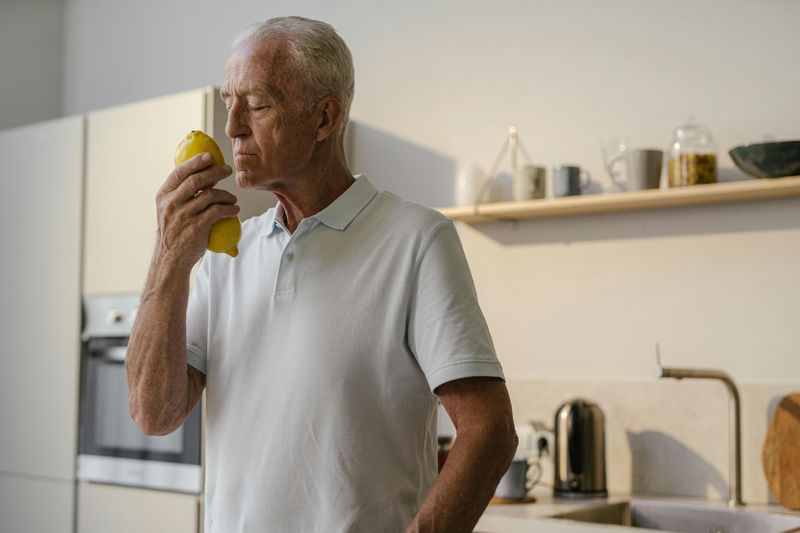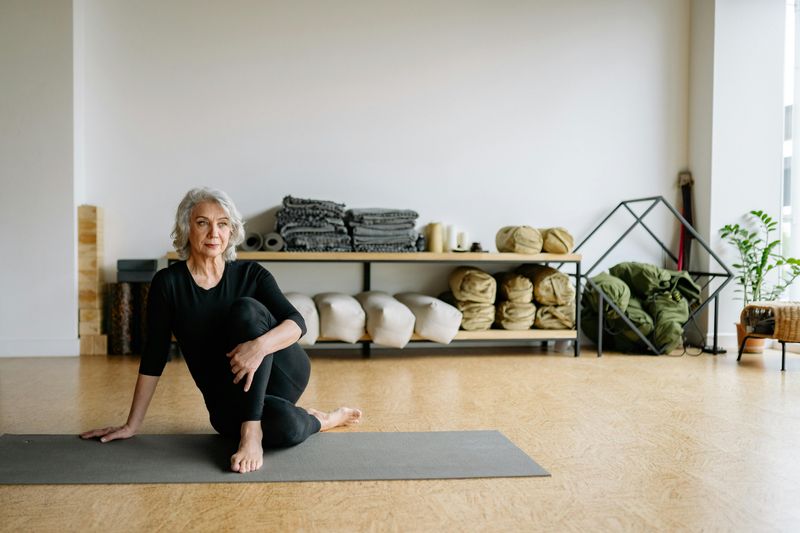11 Reasons People Stop Taking Care of Themselves as They Get Older

As people age, the demands of life shift in ways that can impact self-care routines. While society often emphasizes taking care of others, it can lead to neglecting one’s own needs. Many older adults find themselves in roles that prioritize caregiving for family or work, leaving little room for personal attention. Coupled with physical challenges and emotional hurdles, it’s easy for self-care to take a backseat. This post explores 11 reasons why self-care diminishes with age, highlighting the emotional and societal factors that contribute to this trend. Understanding these reasons can empower individuals to reclaim and prioritize their well-being.
1. Emotional Burnout

Imagine a life where giving never stops. Years of focusing on work and family can leave one emotionally depleted. Constantly operating in survival mode, self-care seems like an unattainable luxury. As days blur together, the energy to prioritize oneself dwindles. When you’re tired at the core, even small acts of care feel monumental.
The emotional reserves dry up, and the motivation to engage in wellness practices fades away. In such a state, self-care feels like yet another demand, rather than a rejuvenating choice. This burnout cycle can perpetuate, leaving individuals feeling trapped and disconnected from their needs.
2. Chronic Stress Becomes the Norm

When stress becomes a constant companion, noticing its presence becomes nearly impossible. For many older adults, stress is no longer an anomaly but a baseline state. Lack of awareness around this pervasive stress numbs motivation for self-care.
In this fog of chronic tension, small acts of self-loving care may seem futile. The exhaustion of dealing with everyday stressors overshadows the joy in taking time for oneself.
Without intervention, the pattern continues, eroding the spirit. Acknowledging this state can be the first step toward breaking free and reclaiming the joys of self-care.
3. Identity Shifts

Life is a series of transitions, each bringing its own set of challenges. As roles change with age—parent, partner, employee—identity shifts can occur, leading to a loss of purpose. With these transitions, self-neglect can easily creep in.
When the familiar fades, finding motivation to engage in self-care becomes difficult. It’s as if the compass guiding one’s life is lost, and without it, routines that once felt fulfilling now feel empty.
Rediscovering a new identity is crucial to revitalizing the commitment to self-care and breaking free from the cycle of neglect.
4. Unprocessed Grief or Disappointment

Life’s path is rarely linear. Unhealed wounds from career setbacks, broken relationships, or health challenges can quietly erode self-worth. These unresolved emotions lead to a gradual disinvestment in personal care.
When disappointment lingers, the energy to nurture oneself diminishes. It’s as if the shadow of what could have been blocks the light of self-care.
Acknowledging and processing these feelings is vital. Only then can the door to self-care reopen, allowing individuals to value themselves and their well-being with renewed vigor.
5. Physical Pain or Health Challenges

Chronic pain can be a formidable barrier to self-care. For those experiencing ongoing discomfort, even basic activities become arduous. The energy required to maintain personal well-being feels insurmountable.
Physical challenges can trap individuals in a cycle of avoidance. When grooming, exercising, or socializing feels like an uphill battle, self-care routines quickly fall by the wayside.
Breaking this cycle requires a gentle approach, focusing on small, manageable steps to regain control. Building a routine that accommodates one’s physical needs can reignite the spark of self-care.
6. Feeling Invisible

Invisibility is a subtle thief of self-worth. As people age, societal focus shifts, often leaving older individuals feeling overlooked. This perceived invisibility can diminish the importance of self-care.
When attention fades, the motivation to care for oneself wanes. The question “Who will notice?” becomes a constant refrain, turning self-care into a performative act rather than an empowering one.
Reclaiming visibility starts from within. Recognizing one’s value, irrespective of external acknowledgment, can reinvigorate the desire to invest in personal well-being.
7. Depression and Loneliness

Isolation weighs heavily on the spirit. Depression and loneliness often lead to self-neglect, as the joy in caring for oneself fades. When connection diminishes, self-care loses its allure.
In solitude, acts of self-love feel meaningless. The lack of social interaction compounds feelings of despair, making it even harder to break the cycle of neglect.
Addressing mental health and seeking connection can be transformative. Fostering relationships and community involvement can pave the way for a renewed commitment to self-care.
8. Caregiver Fatigue

Caregivers often put others first, leaving little room for their own needs. Over time, this selfless dedication can lead to deep-seated neglect of personal well-being.
The habit of prioritizing others becomes second nature, and when it’s time to focus inward, the skills and motivation for self-care may have faded.
Relearning to care for oneself is essential. By balancing caregiving duties with personal time, individuals can gradually rekindle their relationship with self-care, ensuring they remain strong for both themselves and those they love.
9. Financial Pressure

Financial constraints can make self-care feel like a luxury. As healthcare costs and job instability rise, even small indulgences can seem irresponsible.
When money is tight, cutting corners on personal well-being becomes an easy, albeit detrimental, decision. The stress of financial insecurity compounds, further discouraging self-care.
Finding creative, cost-effective ways to nurture oneself is crucial. Simple pleasures, like a walk in nature or a quiet moment with a book, can offer solace without straining the budget.
10. Shame or Self-Criticism

Shame is a powerful deterrent to self-care. When individuals feel they’ve “let themselves go,” self-criticism takes root, further discouraging engagement with care routines.
This shame cycle becomes self-reinforcing, keeping individuals trapped in avoidance. Instead of fostering growth, self-care feels like an unattainable standard.
Breaking free requires self-compassion. By acknowledging imperfections and embracing kindness toward oneself, the path to self-care can become a journey of healing and acceptance.
11. Losing the “Why”

Purpose is the heart of self-care. When individuals lose sight of their “why,” motivation wanes. Whether due to lack of goals or a disconnect with life’s vibrancy, self-care loses its appeal.
This drifting sensation leaves individuals unmoored, with routines feeling aimless and unsatisfying. Rediscovering the “why” is key to reinvigorating self-care.
By aligning actions with passion and purpose, individuals can reignite their commitment to personal well-being, finding joy and meaning in the process once more.

Comments
Loading…